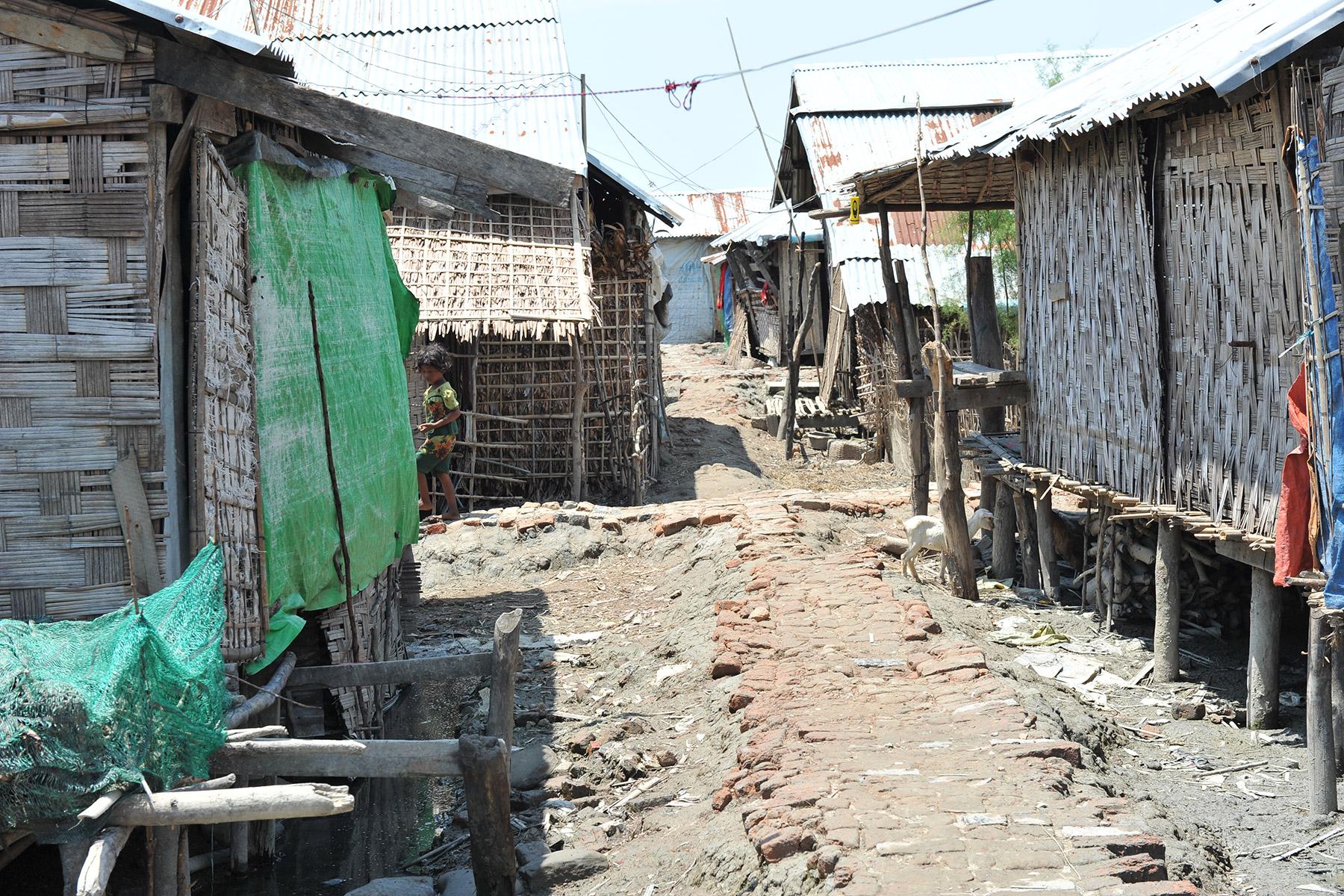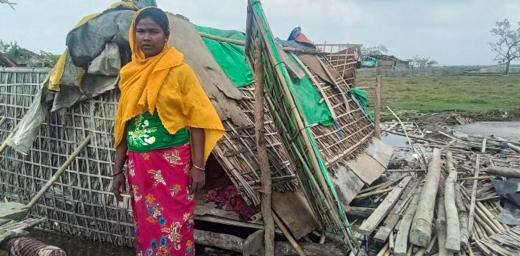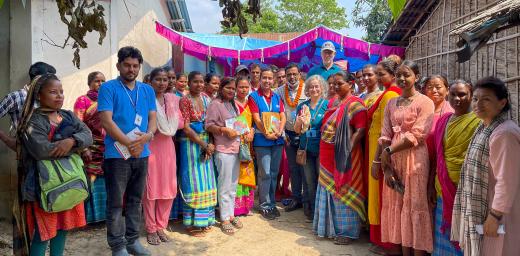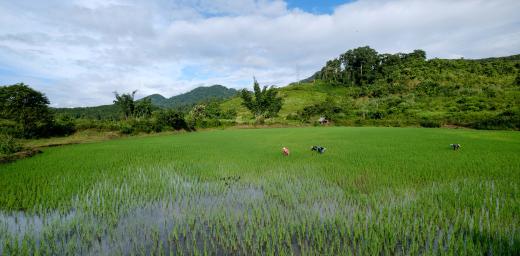"Devastating destruction” in Sittwe
(LWI) - The Lutheran World Federation has issued an urgent call for donations after the Cyclone “Mocha” made landfall in Myanmar on Sunday 14 May. A storm surge flooded camps for internally displaced persons and the coastal areas of Sittwe. Many telecommunication towers and electricity poles collapsed, leaving large parts of Rakhine state without electricity, internet, and mobile connections. Authorities and humanitarian teams are still assessing the casualties and damage. So far, six people have been reported dead.
Images on social media show collapsing telecommunication towers and electricity poles, roofs that have been of houses, uprooted trees, and flooded streets. Early reports indicate significant damage to houses and other infrastructure in Sittwe and Gwa townships.
LWF team relocated
The cyclone formed last week in the Bay of Bengal and reached category 5 with wind speeds as high as 220km/h before making landfall in Sittwe at noon on 14. A storm surge flooded communities close to the sea, including camps for internally displaced persons. More than 100,000 persons had been evacuated by authorities to storm shelters, according to official sources. Some of the LWF team who reside in at-risks locations were also relocated from the field office in Sittwe to the LWF office in Mrauk-U.
We hear about mass damage across the state but have limited details due to the lack of communication.
Hari AWASTHI, LWF Coordinator Rakhine State
“We expect severe damage of homes, schools and other community infrastructure including our offices,” says Hari Awasthi, LWF Area Coordinator for Rakhine State. “We hear about mass damage across the state but have limited details due to the lack of communication.” The LWF team plans to assess the situation in camps and communities where it has been working for years as soon as weather conditions allow, Awasthi adds.
Concern: waterborne diseases and land mines
"So far, we know that there is enormous need for emergency shelter, food, relief goods such as blankets and cooking equipment, and water and sanitation”, says Susan Muis, Regional Program Coordinator for Asia. LWF is focusing on safe shelter construction, provision of emergency items and livelihood recovery. It will also continue its educational work. Plans are being made to rebuild the damaged learning spaces and distribute school materials to children whose homes and schools have been destroyed.
The team is especially concerned about the risks of waterborne disease outbreaks, as well as land mines and unexploded ordnances that might have moved due to the landslides and heavy rains.
LWF has been present in Myanmar since Cyclone Nargis in 2008, supporting vulnerable communities in the IDP camps in Rakhine and other states. LWF works together with the local Department for Disaster Management and has been training volunteers in the communities for extreme weather events like tropical storms. “We hope that together with local authorities, we will be able to provide quick and efficient help to those who need it”, Muis concludes.






